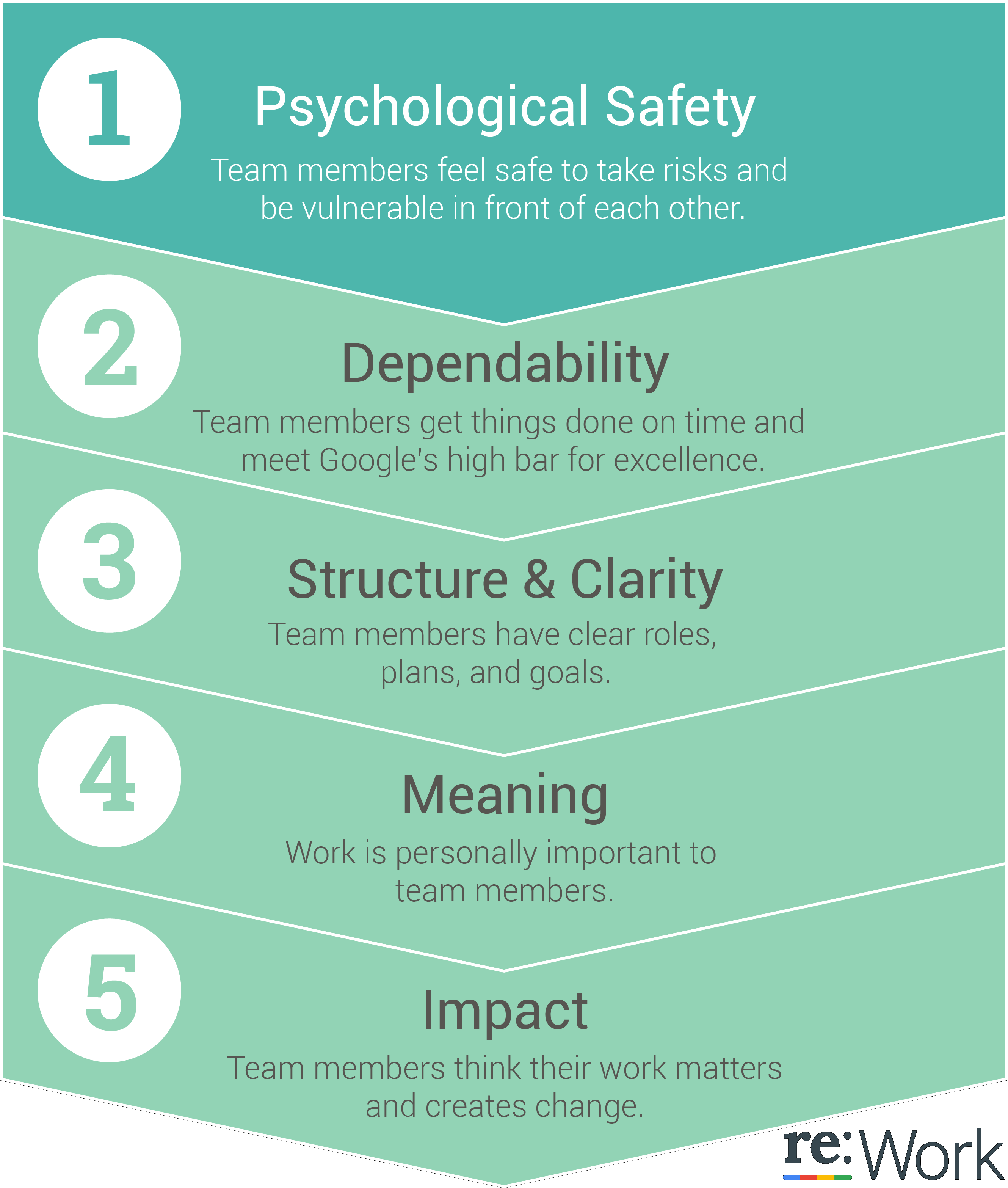Mindfulness and Teamwork

No one person can do it all. We all rely on others to get our jobs done. Whom we engage matters and how we engage is critical in making that working relationship succeed. In many organizations teams come and go. Collections of people get together to work on a particular project and when it’s over they disband and go onto other ventures. Teams may also remain together for many years in an ongoing capacity. Regardless of the type of team you manage, it’s important to all work together. What makes some teams flourish and some fail?
Google did some extensive studying with regards to what makes teams perform at a high level. They initially thought it would be things like diversity, or manager’s influence or personality mix but in fact none of those traits or skills made any significant difference.
The most important aspect of a team that made them succeed was when teams had an environment that promoted and sustained psychological safety. When team members felt they were able to speak up without judgment or were able to try new things and discuss possibilities openly they thrived. Second on the list of traits was trust in the ability of the other team members to deliver what was expected. Both of these traits involve trust and developing trust amongst team members can be learned. Properly set goals and objectives was the third trait successful teams had. The final 2 traits involved meaning and purpose. When team members felt their project had meaning and purpose they were motivated to excel.

Developing these skills needed to make successful teams can be learned. Mindfulness teaches us non-judgment. Non-judgement of ourselves and non-judgment of others. This does not mean that we are not allowed to have an opinion but rather we are not to judge ourselves or others as bad people for having an opinion or preference. Non-judgment also means that when things do not turn out optimally we refrain from judging ourselves or others as failures. We then can shift our stance from failure to feedback. What can we learn from this situation in order to move forward?
Mindfulness also teaches acceptance. Acceptance of what is or has happened. Acceptance is not having to like everything but rather accept what actually is. Acceptance releases from the bondage of grasping and averting and desperately trying to control something we cannot. When we release these grasping and averting tendencies we open ourselves up to trusting ourselves and our abilities. We can then bring this trust onto the relationships with others.
Building trust amongst team members can be cultivated in a number of ways. Compassion and perspective taking meditation practices build skills that allow us to maintain a trusting mindset even in the face of challenges.
Let us help you develop your Mindfulness strategy to help create a more productive and effective team environment.
